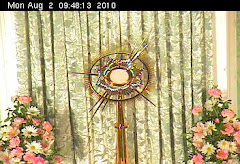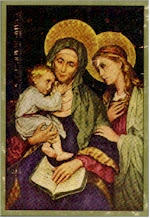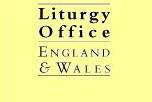
In today’s Gospel we meet Jesus as He is approached by some Pharisees who ‘were testing him’. They asked Jesus to give a judgement on the Law of Moses; they said, Moses allowed us 'to draw up a writ of dismissal and so to divorce’. Moses indeed did permit divorce because of the ‘hardness of heart’ of the chosen people.
A woman at that time could be dismissed by her husband for virtually any reason.
In this scene Jesus avails of the opportunity to affirm the indissolubility of marriage as originally planned at creation. He quotes the words of Genesis from the First Reading, ‘For this reason a man leaves father and mother and joins himself to his wife, and they become one body’.
Our Lord very clearly states that the unity and indissolubility of marriage had been established from the beginning. The disciples were surprised at this teaching and asked Jesus to explain it further. He said to them, ‘whoever divorces his wife and remarries commits adultery against her, and if she divorces her husband and marries another, she commits adultery’, it would be impossible to express it more clearly.
Yet how is it possible that there are Catholics who call into doubt this teaching on marriage and continue to consider themselves followers of Christ?
John Paul II in his Apostolic Exhortation, Familiaris Consortio says,
‘Being rooted in the permanent and total self-giving of the couple, and being required by the good of the children, the indissolubility of marriage finds its ultimate truth in the plan that God has manifested in his revelation. He wills and He communicates the indissolubility of marriage as a fruit, a sign and a requirement of the absolute faithful love that God has for man and that the Lord Jesus has for the Church.’ The bond of marriage can be broken only by death; it is an image of the bond between Christ and his Mystical Body.’
The stability and dignity of marriage is of the greatest importance to the futures of our families, of our children, and of society generally. When matrimony is corrupted then our society is seriously ill.
Today we pray in a special way for families and family life.
A woman at that time could be dismissed by her husband for virtually any reason.
In this scene Jesus avails of the opportunity to affirm the indissolubility of marriage as originally planned at creation. He quotes the words of Genesis from the First Reading, ‘For this reason a man leaves father and mother and joins himself to his wife, and they become one body’.
Our Lord very clearly states that the unity and indissolubility of marriage had been established from the beginning. The disciples were surprised at this teaching and asked Jesus to explain it further. He said to them, ‘whoever divorces his wife and remarries commits adultery against her, and if she divorces her husband and marries another, she commits adultery’, it would be impossible to express it more clearly.
Yet how is it possible that there are Catholics who call into doubt this teaching on marriage and continue to consider themselves followers of Christ?
John Paul II in his Apostolic Exhortation, Familiaris Consortio says,
‘Being rooted in the permanent and total self-giving of the couple, and being required by the good of the children, the indissolubility of marriage finds its ultimate truth in the plan that God has manifested in his revelation. He wills and He communicates the indissolubility of marriage as a fruit, a sign and a requirement of the absolute faithful love that God has for man and that the Lord Jesus has for the Church.’ The bond of marriage can be broken only by death; it is an image of the bond between Christ and his Mystical Body.’
The stability and dignity of marriage is of the greatest importance to the futures of our families, of our children, and of society generally. When matrimony is corrupted then our society is seriously ill.
Today we pray in a special way for families and family life.









No comments:
Post a Comment